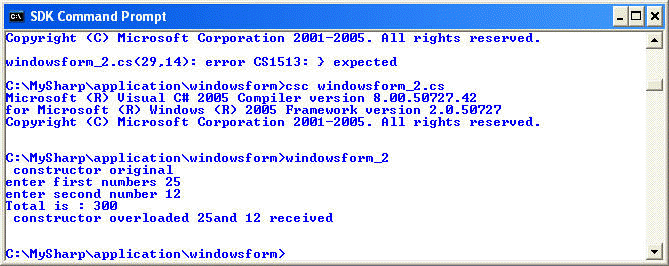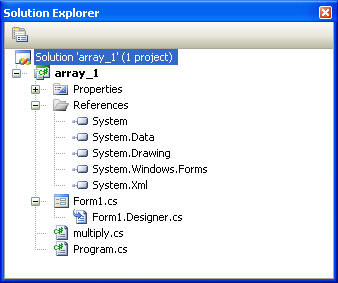
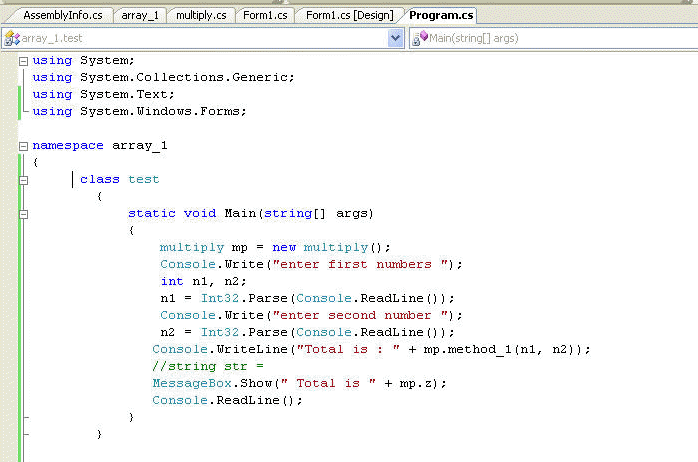
code
using System;
using System.Collections.Generic;
using System.ComponentModel;
using System.Data;
using System.Drawing;
using System.Text;
using System.Windows.Forms;
namespace array_1
{
public partial class Form1 : Form
{
public Form1()
{
InitializeComponent();
}
}
}
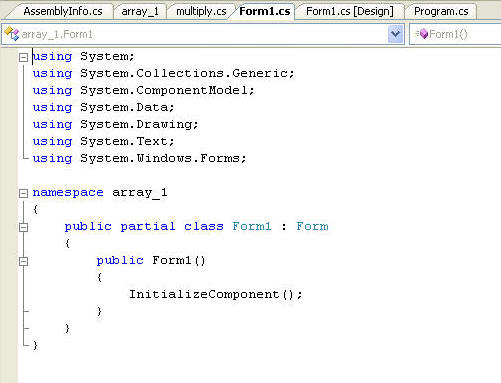
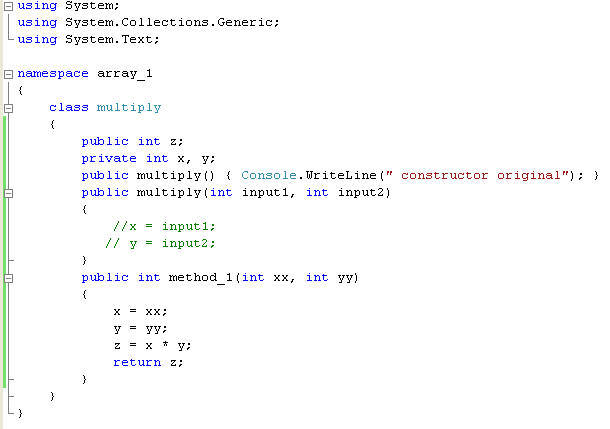
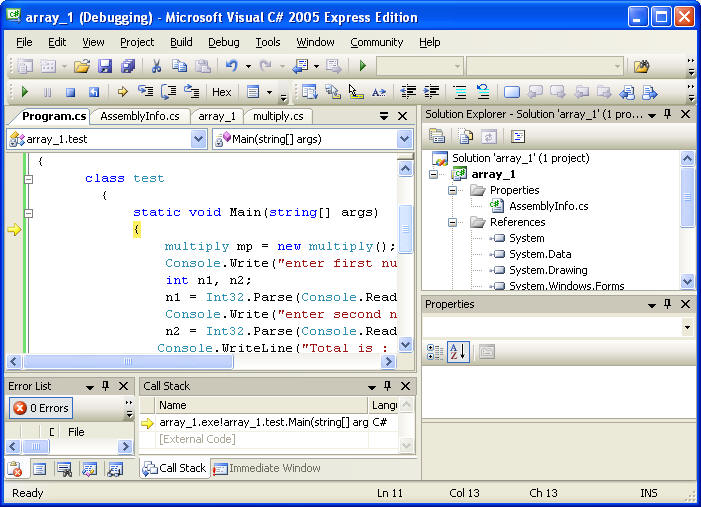
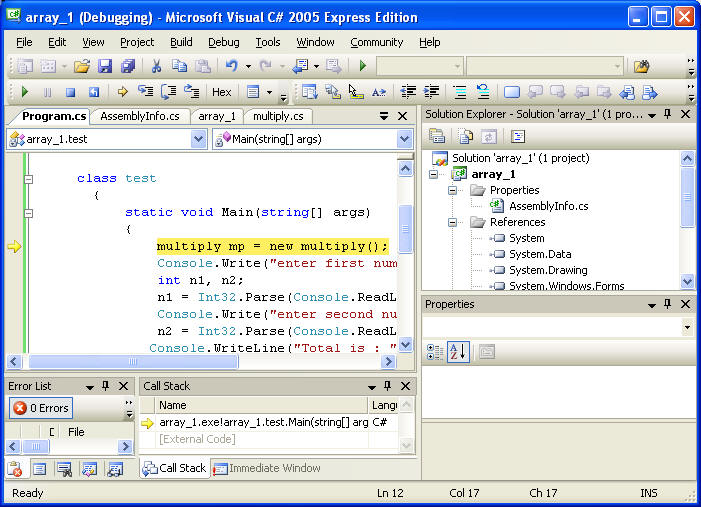
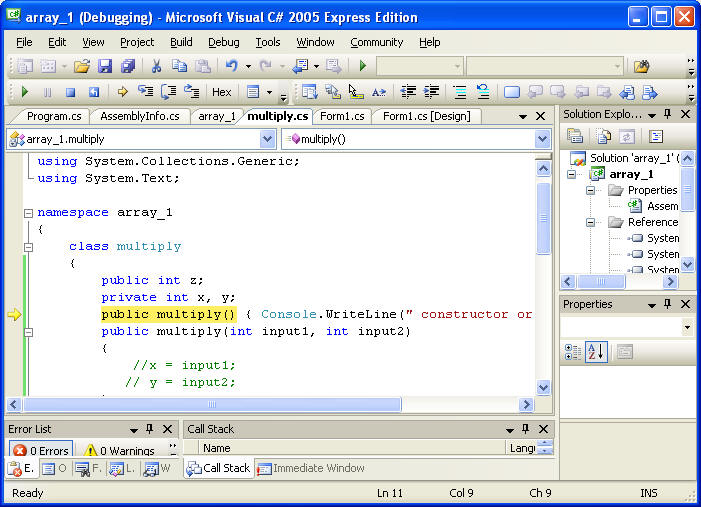
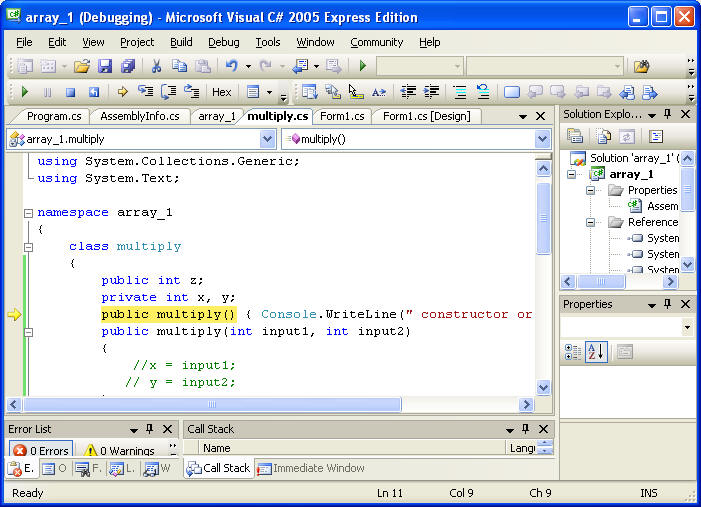
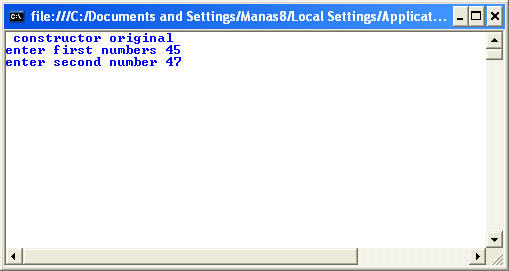
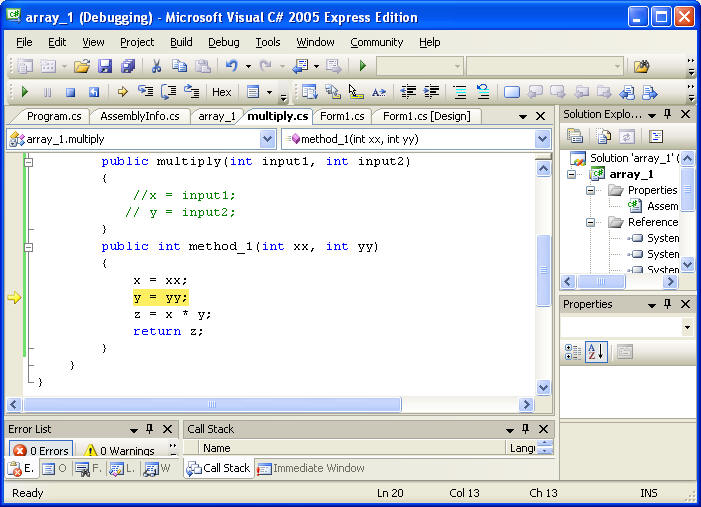
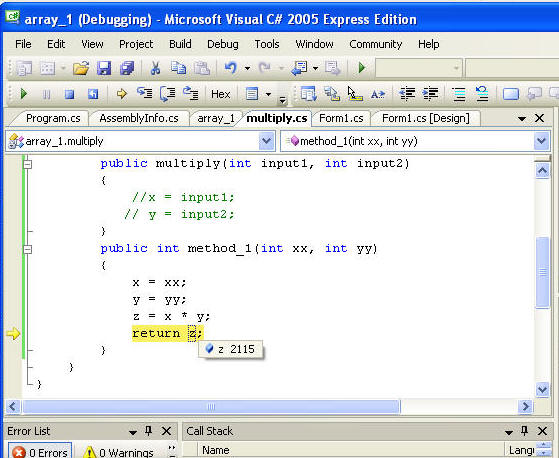
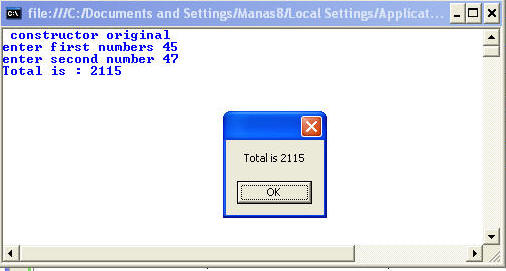
using System;
using System.Collections.Generic;
using System.ComponentModel;
using System.Data;
using System.Drawing;
using System.Text;
using System.Windows.Forms;
//windowsform.cs
namespace array_1
{
public partial class Form1 : Form
{
public Form1()
{
//you need to remark when using framework SD 2.0 commandline
// InitializeComponent();
}
}
class multiply
{
public int z;
private int x, y;
public multiply() { Console.WriteLine(" constructor original"); }
public multiply(int input1, int input2)
{
//x = input1;
// y = input2;
{ Console.WriteLine(" constructor overloaded ");
}
public int method_1(int xx, int yy)
{
x = xx;
y = yy;
z = x * y;
return z;
}
}
class test
{
static void Main(string[] args)
{
multiply mp = new multiply();
Console.Write("enter first numbers ");
int n1, n2;
n1 = Int32.Parse(Console.ReadLine());
Console.Write("enter second number ");
n2 = Int32.Parse(Console.ReadLine());
Console.WriteLine("Total is : " + mp.method_1(n1, n2));
//string str =
MessageBox.Show(" Total is " + mp.z);
Console.ReadLine();
}
}
}
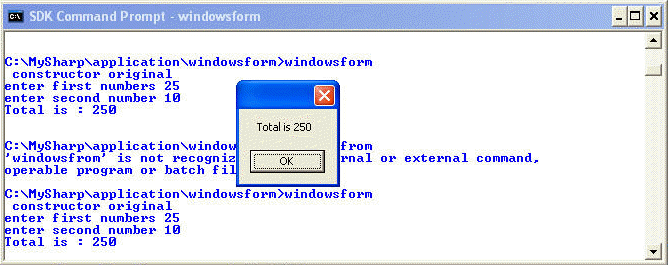
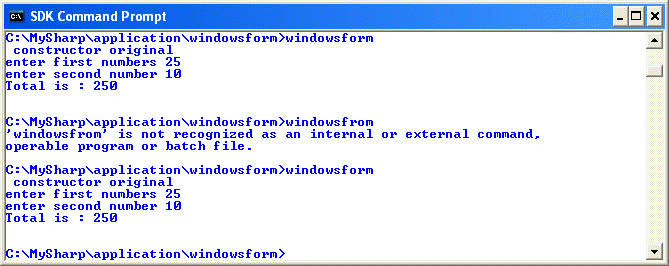
using System;
using System.Collections.Generic;
using System.ComponentModel;
using System.Data;
using System.Drawing;
using System.Text;
using System.Windows.Forms;
//windowsform_2.cs
namespace array_1
{
public partial class Form1 : Form
{
public Form1()
{
//you need to remark when using framework SD 2.0 commandline
// InitializeComponent();
}
}
class multiply
{
public int z;
private int x, y;
public multiply() { Console.WriteLine(" constructor original"); }
public multiply(int input1, int input2)
{
//x = input1;
// y = input2;
{ Console.WriteLine(" constructor overloaded " + input1 + "and " + input2 + " received");}
}
public int method_1(int xx, int yy)
{
x = xx;
y = yy;
z = x * y;
return z;
}
}
class test
{
static void Main(string[] args)
{
multiply mp = new multiply();
Console.Write("enter first numbers ");
int n1, n2;
n1 = Int32.Parse(Console.ReadLine());
Console.Write("enter second number ");
n2 = Int32.Parse(Console.ReadLine());
Console.WriteLine("Total is : " + mp.method_1(n1, n2));
//string str =
MessageBox.Show(" Total is " + mp.z);
multiply mp2 = new multiply(n1,n2);
Console.ReadLine();
}
}
}

Constructor overload was not in operation, because we by first formed an object with first constructor and then used a parameterized method; however when we created the another object ( " multiply mp2 = new multiply(n1,n2);" and added two arguments that corresponded to the overloaded-parameters of the constructor, we note the output from overloaded constructor

